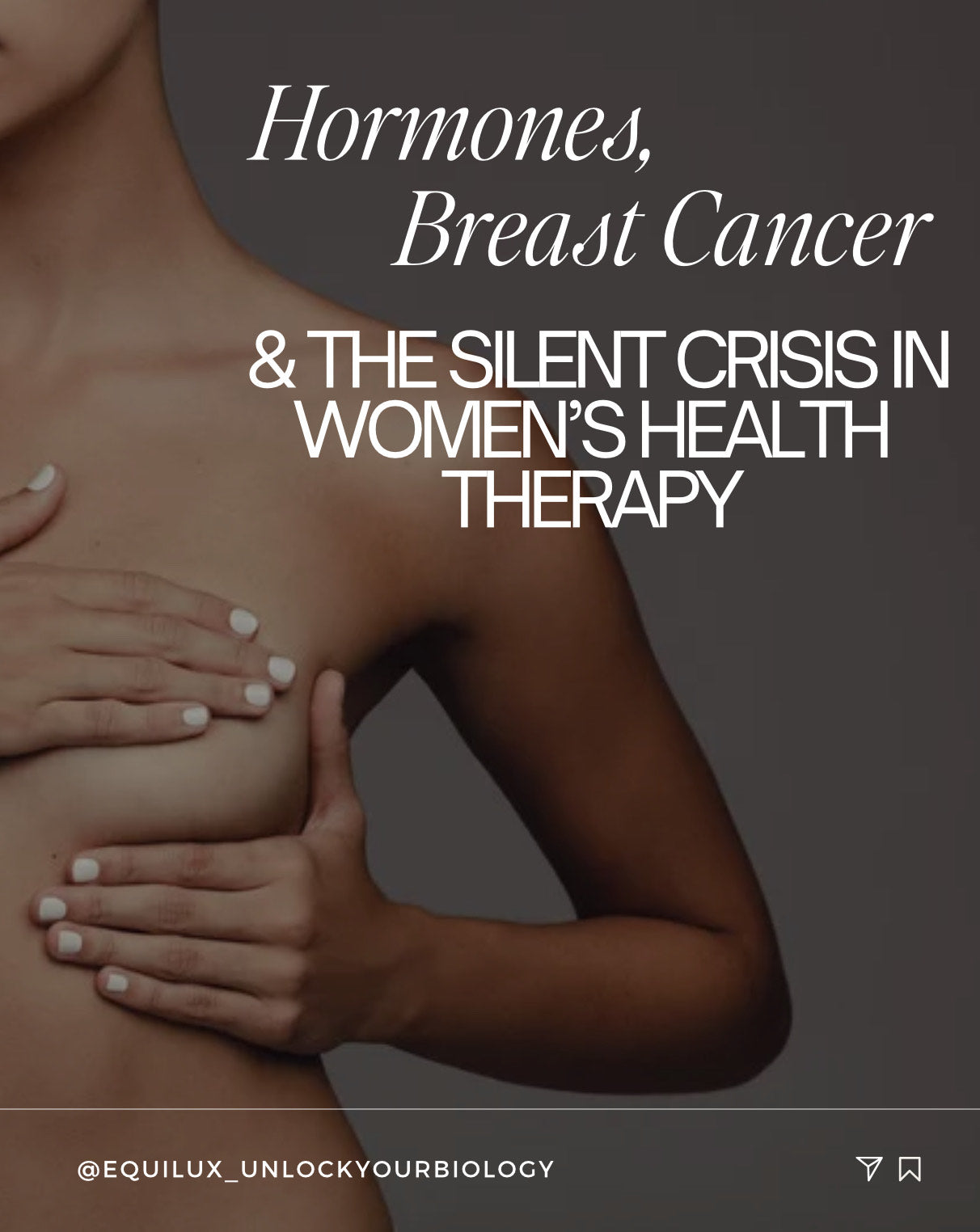Beyond Pink Ribbons: Hormones, Breast Cancer & the Silent Crisis in Women’s Health
Every October, the world turns pink. Breast Cancer Awareness Month paints our feeds, our outfits, and even our coffee cups with ribbons—reminding us of screenings, research, and survivorship. But there’s a missing chapter in this story, one that too often gets shoved into the shadows: hormones.
Because here’s the truth—hormones aren’t just about fertility or hot flashes. They are the architects of breast biology, metabolism, and lifelong vitality. And when they tip out of balance, the ripple effects can shape both cancer risk and recovery.
Hormones & Risk: More Than “Estrogen = Bad”
-
Estrogen dominance: The Women’s Health Initiative made headlines when it showed that estrogen alone can raise breast cancer risk—yet estrogen balanced with progesterone tells a far more nuanced story, sometimes even protective.
-
Genes matter: Two women can have the same hormone levels, but wildly different outcomes. Why? Genes like CYP1B1 and COMT dictate whether estrogen gets metabolized into friendly, protective forms… or DNA-damaging troublemakers.
-
The testosterone twist: Often dismissed as the “male hormone,” testosterone may actually shield women from breast cancer while improving energy, mood, and intimacy. Balance, not avoidance, is the key.
After Cancer: The Quality-of-Life Cliff
Surviving cancer is heroic. But for many women, the aftermath brings a new crisis: genitourinary syndrome of menopause (GSM)—think dryness, pain, infections, and bladder issues that derail confidence, intimacy, and daily life.
-
Up to 70% of postmenopausal women face GSM, yet only a quarter ever get treatment.
-
Breast cancer survivors? They often get hit harder and earlier thanks to hormone-suppressing therapies—yet stigma keeps solutions off the table.
-
Ignoring GSM doesn’t just dampen joy; it increases risk for UTIs, sexual dysfunction, and even social isolation.
The Path Forward: Precision, Not Pink-Washing
The future of women’s health isn’t more generic awareness—it’s personalized, evidence-based care.
-
At-home hormone and genetic testing (yes, from your living room) gives women real insight into their risk.
-
Individualized treatment—hormonal or non-hormonal—can be tailored to protect both longevity and vitality.
-
Integrated care that unites oncology, gynecology, and longevity medicine ensures women don’t just survive cancer, but thrive afterward.
At Equilux – Unlock Your Biology, that’s our mission: actionable science, not slogans. Awareness saves lives, but precision care saves quality of life.
The Bottom Line
Breast cancer awareness has been a triumph. But the next frontier is clear: tackling hormone health as both a risk factor and a survivorship essential.
This October, let’s do more than wear pink. Let’s start talking hormones—because the real finish line isn’t survival, it’s living fully: healthy, vibrant, and unapologetically alive.


Leave a comment